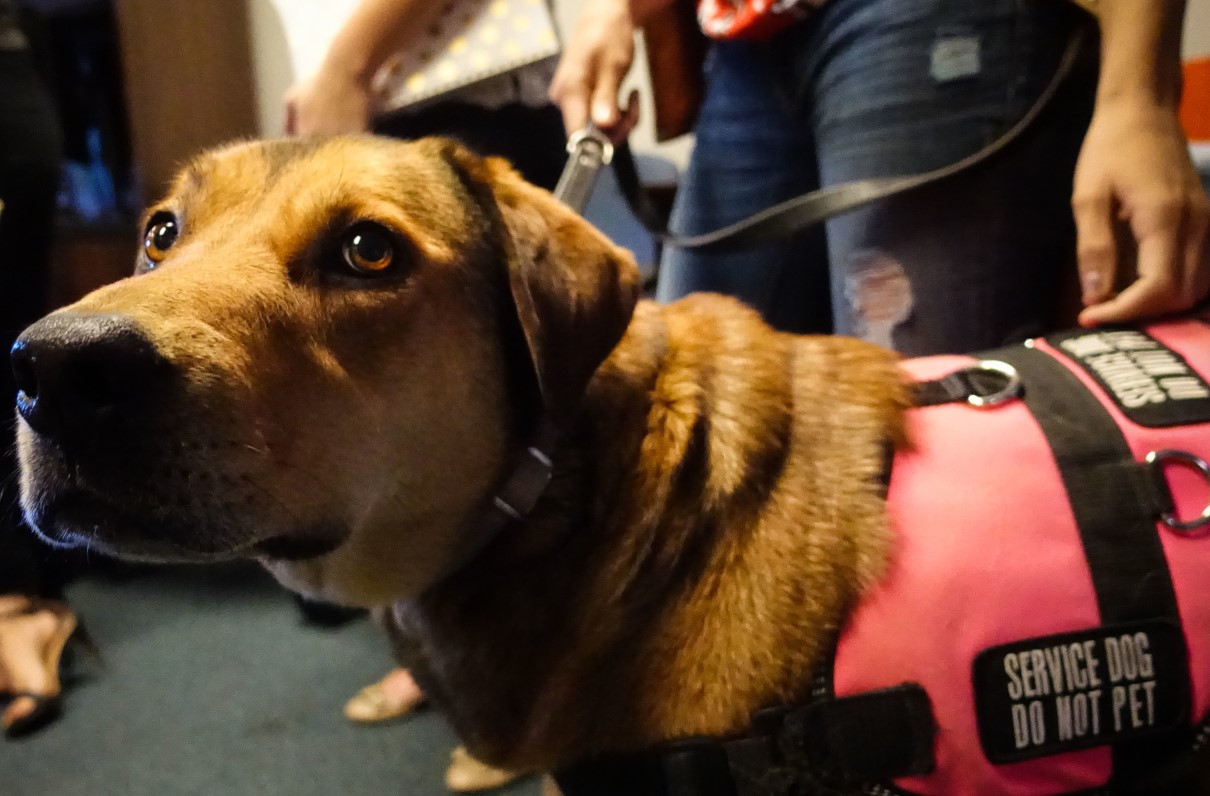Veterans combating post-traumatic stress will be eligible to receive VA-covered service dogs as part of a pilot program included in a law signed by the president on Aug. 25.
The Puppies Assisting Wounded Servicemembers (PAWS) for Veterans Therapy Act (H.R. 1448) was introduced by Rep. Steve Stivers (R-Ohio) in March. It includes a requirement for a pilot program involving at least five VA medical centers, which will partner with accredited service dog organizations within 180 days of the act’s passage. Veterans and service dogs will go through a work-therapy training program; at the conclusion of the program, veterans will have the option to adopt their paired dog.
Among other tasks, the dogs will be trained to recognize when the veteran is having an anxiety attack or nightmare and go alert or wake them, block a crowd to give the veteran space, and to fetch medication or a phone. After five years, the VA will report its results to Congress, which will evaluate whether the program should be continued, made permanent, or discontinued. At that time, the program may be expanded to include other mental health conditions.
[RELATED: Veteran Disability Claims Backlog Expected to Grow in Coming Months]
While the VA has offered coverage of service dogs to veterans diagnosed with visual, hearing, or substantial mobility impairment since 2012, mental health conditions were not included. Nearly 1.2 million veterans received compensation for post-traumatic stress in FY 2020, according to the Veterans Benefits Administration’s Annual Benefits Report, behind only tinnitus (2.3 million), hearing loss (1.3 million), and limitation of knee flexion (1.3 million) as the most prevalent service-connected disabilities.
While medication is frequently used to treat post-traumatic stress, these drugs frequently have other unpleasant side effects or exacerbate the existing symptoms. Studies have found that service dogs are a viable alternative treatment from the standpoints of both cost and efficacy.
Want to Help Servicemembers in Your Community?
Learn how you can make a difference with your local chapter.

